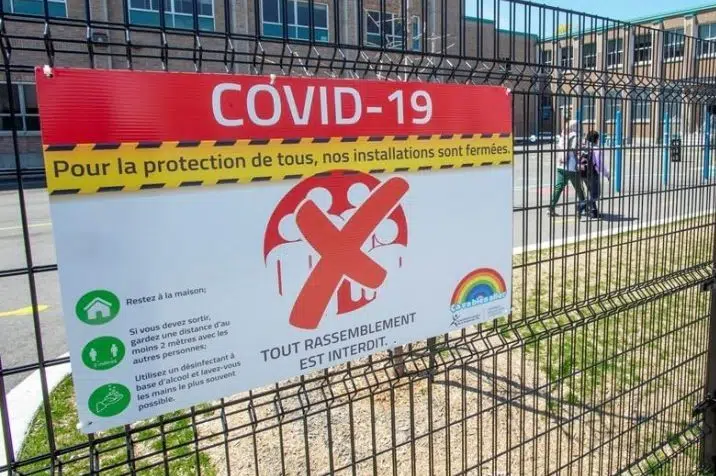OTTAWA — Almost two-third of parents in a new poll say they believe children returning to school in the fall should wear masks at least part of the time.
The latest poll on the COVID-19 pandemic by Leger and the Association for Canadian Studies found that 41 per cent of respondents believe school children should be required to wear a mask while they’re on the bus or in the school.
A further 21 per cent said yes to masks, but only when a student is outside of class during recess, lunch or if on the bus — suggesting they were OK with students taking off their masks once in class and not in common areas.
There was also a group of respondents, accounting for 28 per cent, who believed masks should be optional.
The current public health advice is that non-medical masks can contain infectious particles on their wearers’ breath, reducing the risk of contagion from people with COVID-19 who might not know they’re carrying the illness.
The Leger online poll of 1,524 Canadians over age 18 took place July 17 to 19. The poll cannot be given a margin of error because it is not a random sample.
Leger vice-president Christian Bourque said support for masks at school may increase as more jurisdictions adopt mandatory mask measures.
He said social norms are already changing, noting the similarity in numbers between poll respondents who said they support masks at schools and those who said they wear masks when they go to grocery stores.
“The more we consider this potential for making the mask mandatory, the more parents will probably find that the mask should be mandatory as well,” Bourque says.
“The social norm that we should be wearing the mask will only go up the closer we get to the actual start of the school year.”
The poll suggests many parents are concerned from a health perspective about sending their children to school or daycare, even while economic concerns abound about parents unable to work if they don’t have safe places for their children to be during the workday.
Sixty-two per cent of respondents also expressed concern about sending their children back to school.
Concerns were highest in Ontario, where schools have been closed for months, and lowest in Quebec, which had some of the earliest school and daycare reopenings in the country.
Even those who say they’re not worried are likely to have concerns in other ways, such that an asymptomatic child might pass the novel coronavirus on to a grandparent, said Bourque.
“The situation is a lot more complex than just having your son or daughter at school,” he said.
Many school boards are working on plans for reopening schools in many parts of the country that have been closed since March when public health lockdowns were ordered to slow the spread of COVID-19.
Some, such as Ontario, are considering hybrid weeks, in which groups of students are physically in school part of the time and work at home or connect by video conference for the rest.
The results show that 59 per cent supported a hybrid school week. Meanwhile, 31 per cent of respondents opposed such a plan.
About half of respondents in the poll said class sizes should be halved from their usual numbers when school reopens. A further 20 per cent believed classes should be smaller — one-third of their usual size.
Just over one-fifth of respondents, or 23 per cent, told Leger that class sizes should be at 100 per cent of what they were before the lockdowns.
“The majority of people expect that we will go back to school, but not in a normal class size, nor with a normal schedule,” Bourque says.
The Canadian Press







